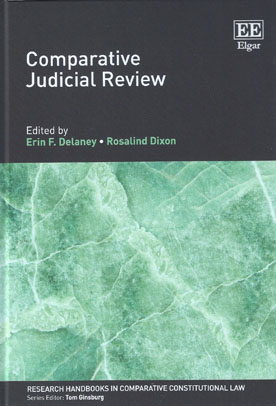
Constitutional courts around the world play an increasingly central role in day-to-day democratic governance. Yet scholars have only recently begun to develop the interdisciplinary analysis needed to understand this shift in the relationship of constitutional law to politics.
This edited volume brings together the leading scholars of constitutional law and politics to provide a comprehensive overview of judicial review, covering theories of its creation, mechanisms of its constraint, and its comparative applications, including theories of interpretation and doctrinal developments.
This book serves as a single point of entry for legal scholars and practitioners interested in understanding the field of comparative judicial review in its broader political and social context.